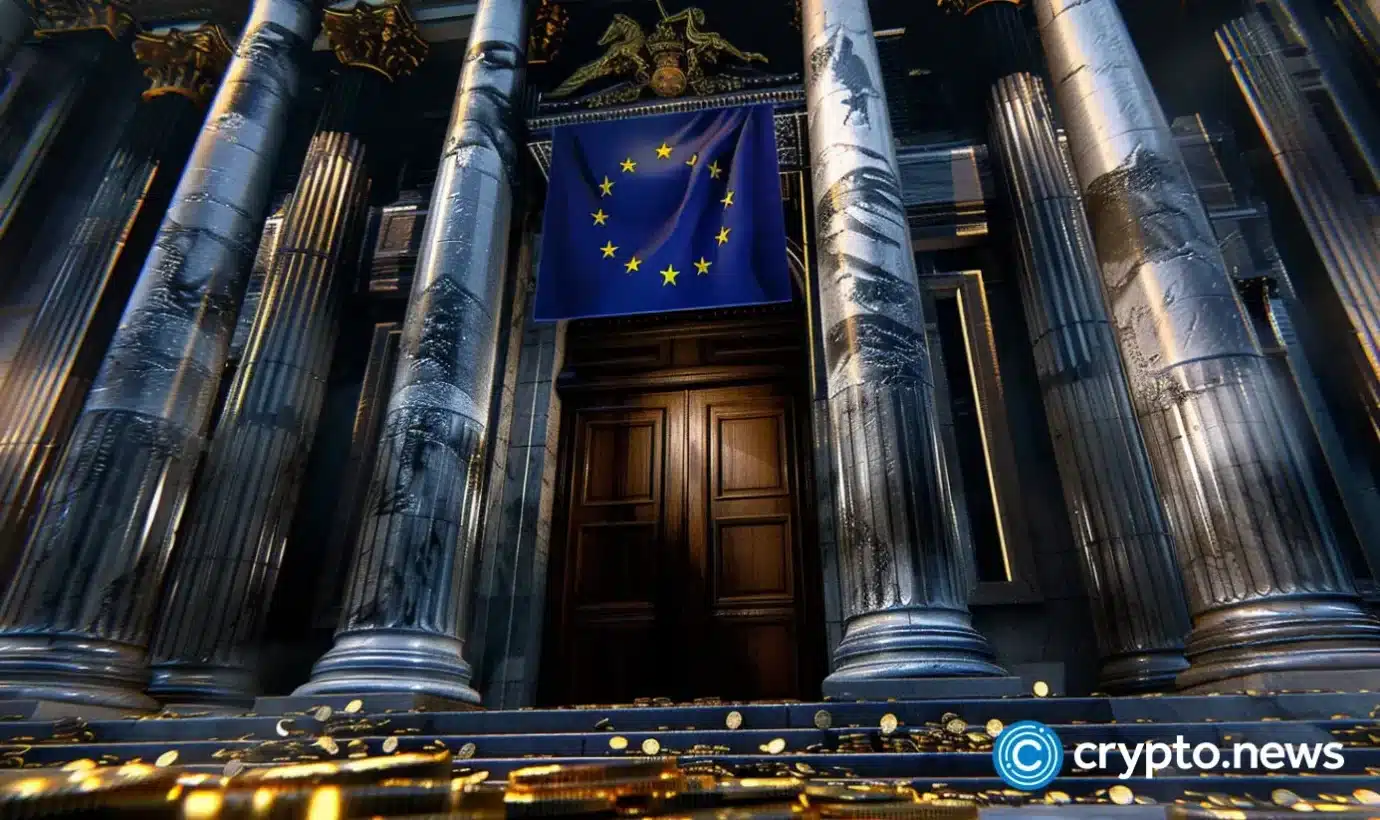Is Europe’s right-wing surge a catalyst for crypto market boom?

How might right-wing parties’ support for economic freedom affect the growth of the crypto market in Europe?
Table of Contents
Europe is undergoing a critical political shift, with right-wing parties gaining momentum across the continent.
In the recent European elections, parties like Marine Le Pen’s National Rally in France and Giorgia Meloni’s Brothers of Italy made substantial gains, hinting towards a rising trend of euroscepticism and populism.
Historically, political instability drives investors towards safe-haven assets, and cryptocurrencies like Bitcoin (BTC) have often served this role.
Michaël van de Poppe, a renowned crypto analyst, recently talked about this phenomenon, noting that the political upheaval in Europe could bolster Bitcoin’s appeal.
Meanwhile, the European Parliament’s new composition could lead to changes in crypto regulation. Right-wing parties, known for advocating economic freedom and reduced government intervention, may push for a more lenient regulatory environment.
If this shift happens, then it could foster innovation and attract crypto entrepreneurs to Europe, enhancing the region’s role in the global crypto market.
For instance, the European Conservatives and Reformists (ECR) and the Identity and Democracy (ID) parties, both of which gained seats, have historically supported less restrictive economic policies.
If these parties influence the legislative agenda, we might see a rollback of stringent crypto regulations, making Europe a more attractive destination for crypto investments and startups.
Additionally, the political climate might affect broader economic policies, such as the EU’s Green Deal. Right-wing parties have often expressed skepticism towards extensive climate regulations, which could lead to a reallocation of resources, indirectly benefiting the crypto sector, particularly in areas related to energy consumption and mining operations.
What is happening, and where could things go?
France: a potential shift in crypto policy
France has been a notable player in the crypto world, thanks largely to President Emmanuel Macron’s supportive stance. Macron’s administration has provided tax incentives and regulatory clarity, making Paris a hub for crypto innovation.
Companies like Ledger, known for their secure hardware wallets, and Sorare, a fantasy football platform using blockchain, have flourished.
However, with Macron calling for a snap parliamentary election on June 30 and July 7, there’s uncertainty about the future. If the National Rally party, a far-right party, gains a majority, the policy towards crypto could shift.
Le Pen has historically been skeptical of cryptocurrencies. In 2016, she called for a ban on Bitcoin but has since moderated her stance to support strict regulation.
Meanwhile, under Macaron, France has shown a willingness to adapt its policies to support innovation. In 2019, the French Financial Markets Authority (AMF) introduced the PACTE law, providing a legal framework for ICOs (Initial Coin Offerings) and establishing clear guidelines for crypto firms.
Germany’s flip side
Germany’s political arena is also shifting, with the far-right Alternative for Germany (AfD) gaining ground.
The AfD’s skepticism towards centralized financial systems and the euro could influence their stance on cryptocurrencies as they might advocate for decentralized financial structures, potentially benefiting the crypto market.
However, Germany’s environmental concerns regarding crypto mining cannot be overlooked.
The Green Party, despite losing some seats, continues to campaign against the environmental impact of cryptocurrencies, particularly those relying on energy-intensive proof-of-work mechanisms like Bitcoin.
In 2021, Germany took a key step by including crypto assets under its tax laws, treating them similarly to traditional financial instruments.
Germany has also been a frontrunner in integrating blockchain into its financial system. The German Bundesbank has been exploring the potential of blockchain for improving financial transactions’ efficiency and security.
Moreover, in 2020, Germany passed a law allowing banks to sell and store cryptocurrencies, further advocating for its position as a crypto-friendly country.
The AfD’s rise might lead to a push for more decentralized financial systems and less centralized control, which aligns well with the ethos of cryptocurrencies. However, balancing this with environmental concerns will be crucial.
Italy: a supportive stance from the right
Italy presents a complex scenario with Giorgia Meloni’s Brothers of Italy leading a coalition that includes the far-right League. This coalition’s mixed views on economic policies could lead to a fragmented approach to crypto regulation.
While some factions might support a more liberal regulatory framework, others could push for stricter controls to address concerns about money laundering and financial stability.
In the past, Italy has taken steps to regulate the crypto market. In 2022, the Italian Ministry of Economy and Finance introduced regulations requiring crypto service providers to register with the national regulator to enhance transparency and combat illicit activities.
However, the enforcement of these regulations has been inconsistent, leading to a somewhat uncertain environment for crypto businesses.
Despite these challenges, Italy has seen a growing interest in blockchain technology. The Italian Banking Association (ABI) has been exploring the use of blockchain to improve interbank processes, and several Italian companies are experimenting with blockchain-based solutions for supply chain management and other applications.
The coalition government’s approach to crypto will likely be a balancing act. While there might be support for innovation and a push towards making Italy a hub for blockchain technology, there will also be pressures to ensure stringent regulatory measures are in place to prevent misuse.
The European Union and MiCA regulations
On a broader scale, the European Union’s upcoming Markets in Crypto-Assets (MiCA) regulations are set to create a unified regulatory framework for the crypto industry across member states.
These regulations aim to provide legal certainty, protect consumers, and support innovation. The MiCA law, which comes into full effect at the end of 2024, will cover various aspects of the crypto market, including stablecoins and ICOs.
Key lawmakers like Stefan Berger and Ondrej Kovarik, who have been instrumental in shaping EU crypto policy, were re-elected. Their continued presence in the European Parliament provides some stability and continuity in the regulatory shuffle.
Berger, known for his work on MiCA, advocates for balanced regulation that supports innovation while ensuring consumer protection. His influence could ensure that the new regulations are implemented effectively.
What do experts think?
The political situation in Europe is shifting, and it’s creating potential changes for the crypto industry. To explore this, crypto.news spoke with Sergei Peshkov, Head of Business Development at UpGate, and Nejc Žnidar, Co-founder of Cogito Protocol.
Europe isn’t a one-size-fits-all region; each country has its own political and economic quirks. But a common challenge is sustaining economic growth with an aging population and rising social benefits costs. The crypto industry, seen as a lucrative tax revenue source, stands at a critical point. Peshkov emphasizes:
“For both left and right parties, the crypto industry is a potential source of tax revenues. Crypto regulation that enables efficient taxation is likely, regardless of political shifts.”
There’s a perception that right-wing parties might favor less regulation, potentially boosting the crypto industry. However, Peshkov points out:
“Right-wing parties might advocate for less tax burden on crypto industries, but this doesn’t necessarily imply lesser regulation. The EU tends to be bureaucratic and gravitates towards a unified approach.”
Žnidar adds:
“Less regulation doesn’t automatically mean it’s better for innovation. We need reasonable and informed laws that align with new technologies.”
While Europe’s political climate is crucial, its impact on the global crypto market might be limited. Peshkov notes:
“A political climate change in the EU might shake things up for European crypto users. However, this factor alone is unlikely to change the global landscape since EU crypto users make up less than 4% of the global crypto audience.”
Žnidar concluded, adding:
“The current political environment has the power to shift the sentiment towards crypto in a dynamic manner, but at the current stage, people outside of the working groups and blockchain-focused departments are starting to understand that crypto doesn’t automatically equal a scam.”
The road ahead
Looking back, political shifts have consistently influenced financial markets, and the current scenario in Europe is no different.
Historical data reveals that political instability often drives investors towards safer assets. Bitcoin, for instance, saw major upticks during Brexit uncertainties and the Eurozone crisis.
Presently, with right-wing parties gaining ground, the landscape is set for potential changes in crypto regulation. The European Conservatives and Reformists (ECR) and the Identity and Democracy (ID) parties, both of which support less restrictive economic policies, have increased their influence.
If they steer the legislative agenda, we might see a rollback of stringent regulations, potentially positioning Europe as a more attractive hub for crypto investments.
However, this shift is complex. While the rise of right-wing parties could advocate for innovation and attract crypto entrepreneurs, balancing this with environmental concerns and ensuring stringent measures against illicit activities will be crucial.
Will Europe seize this opportunity to lead in the global crypto market? Only time will tell.















